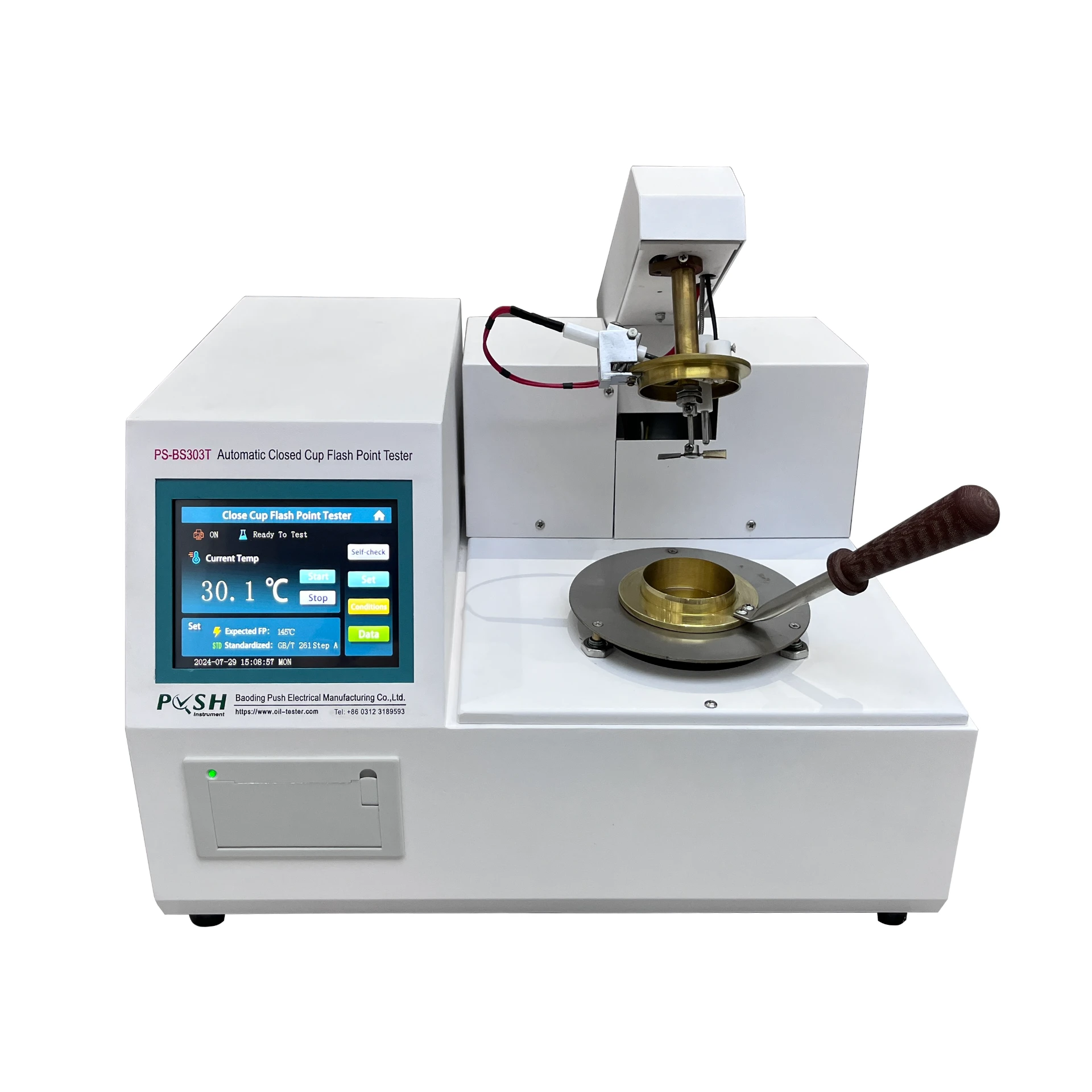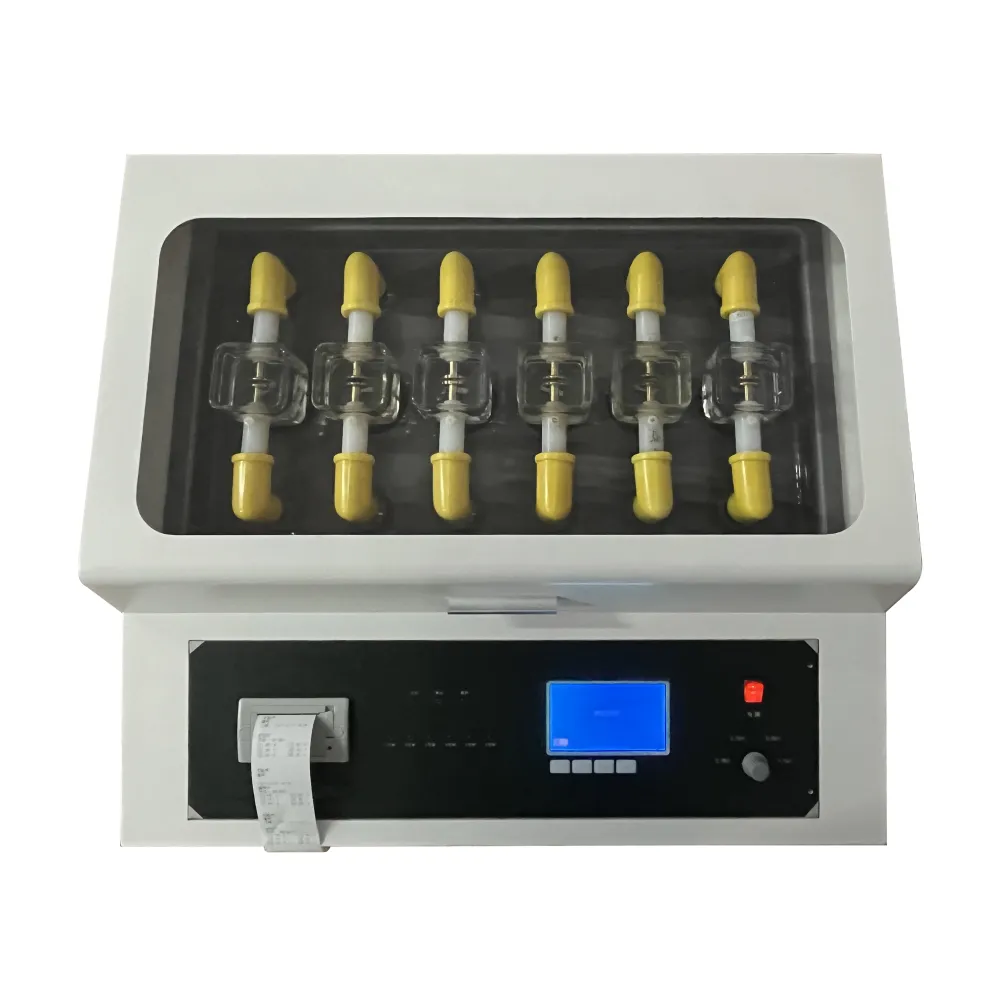TEL:
+86-0312-3189593
 English
English

Telephone:0312-3189593

Email:sales@oil-tester.com
1 月 . 20, 2025 02:23
Back to list
cloud point analyzer
Navigating the complex world of cloud point analyzers can initially appear daunting, but understanding their vital functions and immense benefits is essential for anyone involved in industries where fuel quality and safety are paramount. The cloud point is a critical characteristic of fuel, particularly in cold weather, where the presence of wax crystals can impede flow. A cloud point analyzer is a sophisticated instrument designed to automatically determine the temperature at which a liquid, usually petroleum-based, begins to form solid wax particles.
Trustworthiness, a cornerstone of product credibility, is established through third-party verification and compliance with international standards. For cloud point analyzers, adherence to ASTM D2500 or ISO 3015 standards signifies that the equipment meets rigorous global testing criteria, ensuring accurate and reliable results. Additionally, many leading manufacturers undergo certification by recognized bodies, providing an additional layer of trust and assurance to their clients. In terms of practical application, cloud point analyzers prove invaluable across multiple industries. In the automotive sector, they are essential for assessing the performance of diesel fuels in low temperatures, ensuring vehicles operate smoothly in cold climates. Similarly, in the aviation industry, these analyzers guarantee the efficacy and safety of jet fuels, directly impacting flight safety. The ability to detect and address potential issues related to wax formation before they impact product performance underscores the critical role these devices play in ensuring operational supremacy. Adopting cloud point analyzers in any corporate laboratory setting also signifies a commitment to environmental stewardship and sustainability. These devices help minimize wastage by providing precise data that guide product blending processes, reducing excess and optimized usage of raw materials. In an era where sustainability is not merely encouraged but expected, the incorporation of cloud point analyzers reflects a company’s proactive approach in addressing both operational output and environmental responsibility. In conclusion, cloud point analyzers represent a strategic investment for quality assurance in fuel-related industries. The intersection of expert execution, technological advancement, credible verification, and comprehensive support establishes these devices not only as tools but as strategic partners in operation excellence. Their integration into routine quality control procedures ensures that products meet the highest standards of performance and safety, elevating organizational reputation and laying the foundation for sustained success within competitive marketplaces.


Trustworthiness, a cornerstone of product credibility, is established through third-party verification and compliance with international standards. For cloud point analyzers, adherence to ASTM D2500 or ISO 3015 standards signifies that the equipment meets rigorous global testing criteria, ensuring accurate and reliable results. Additionally, many leading manufacturers undergo certification by recognized bodies, providing an additional layer of trust and assurance to their clients. In terms of practical application, cloud point analyzers prove invaluable across multiple industries. In the automotive sector, they are essential for assessing the performance of diesel fuels in low temperatures, ensuring vehicles operate smoothly in cold climates. Similarly, in the aviation industry, these analyzers guarantee the efficacy and safety of jet fuels, directly impacting flight safety. The ability to detect and address potential issues related to wax formation before they impact product performance underscores the critical role these devices play in ensuring operational supremacy. Adopting cloud point analyzers in any corporate laboratory setting also signifies a commitment to environmental stewardship and sustainability. These devices help minimize wastage by providing precise data that guide product blending processes, reducing excess and optimized usage of raw materials. In an era where sustainability is not merely encouraged but expected, the incorporation of cloud point analyzers reflects a company’s proactive approach in addressing both operational output and environmental responsibility. In conclusion, cloud point analyzers represent a strategic investment for quality assurance in fuel-related industries. The intersection of expert execution, technological advancement, credible verification, and comprehensive support establishes these devices not only as tools but as strategic partners in operation excellence. Their integration into routine quality control procedures ensures that products meet the highest standards of performance and safety, elevating organizational reputation and laying the foundation for sustained success within competitive marketplaces.
Previous:
Next:
Latest news
-
Differences between open cup flash point tester and closed cup flash point testerNewsOct.31,2024
-
The Reliable Load Tap ChangerNewsOct.23,2024
-
The Essential Guide to Hipot TestersNewsOct.23,2024
-
The Digital Insulation TesterNewsOct.23,2024
-
The Best Earth Loop Impedance Tester for SaleNewsOct.23,2024
-
Tan Delta Tester--The Essential Tool for Electrical Insulation TestingNewsOct.23,2024





